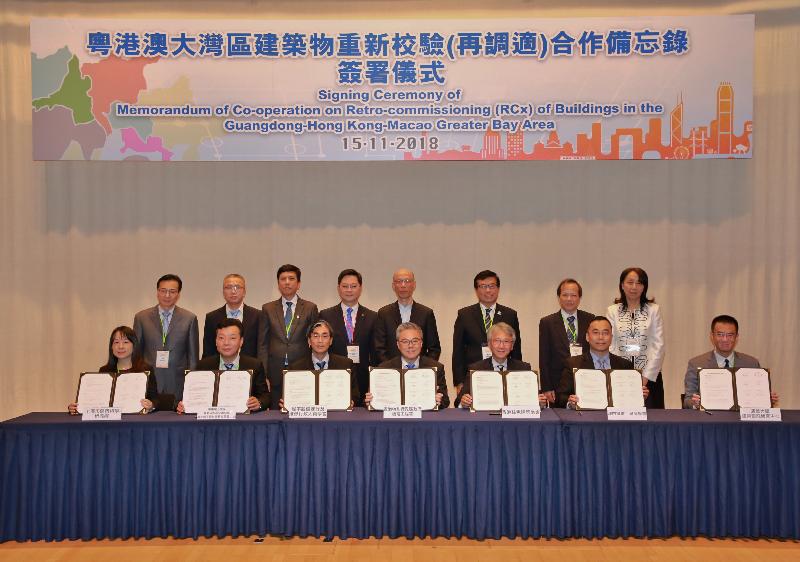Memorandum of co-operation on retro-commissioning of buildings in Guangdong-Hong Kong-Macao Greater Bay Area signed (with photo)
******************************************************************************************
Through conducting regular "health checkups" of a building's energy performance to identify areas of energy saving for operational improvement, RCx is a cost-effective solution for building owners to fine-tune their building systems and equipment with a view to achieving optimal operation efficiency and reducing operating costs.
The Director of Electrical and Mechanical Services, Mr Alfred Sit, said that the MOC aimed to promote further collaboration between various organisations in the Greater Bay Area and other Mainland cities to adopt RCx as a new solution for achieving building energy efficiency through sharing of knowledge, experience and training. He also said he believed that this methodology could be promoted to other cities in the Mainland to achieve greater synergy in energy saving and emission reduction.
The EMSD has all along been promoting RCx through various measures, which include publishing technical guidelines, organising seminars and sharing sessions, and setting up an online resource centre for information sharing. Meanwhile, the Government is also partnering with public bodies, such as the ACT-Shop Programme of the Hong Kong Green Building Council, and offering relevant hands-on training certification programmes for the industry to deepen professional knowledge on RCx.
Ends/Thursday, November 15, 2018
Issued at HKT 19:38
Issued at HKT 19:38
NNNN





